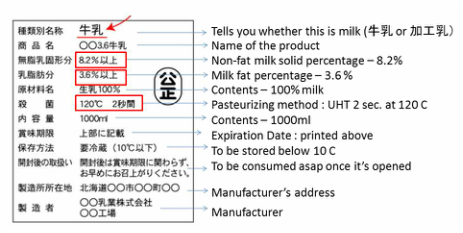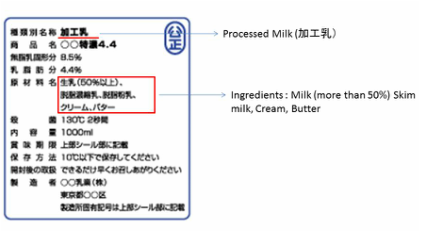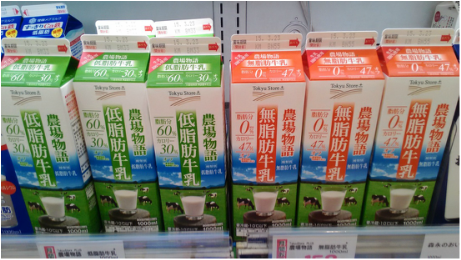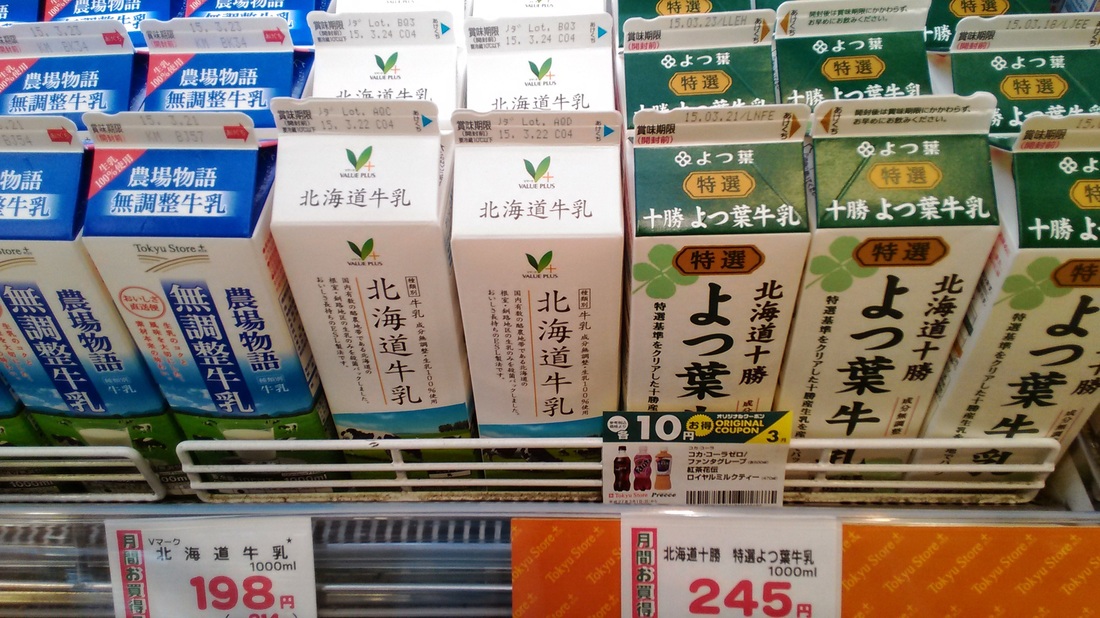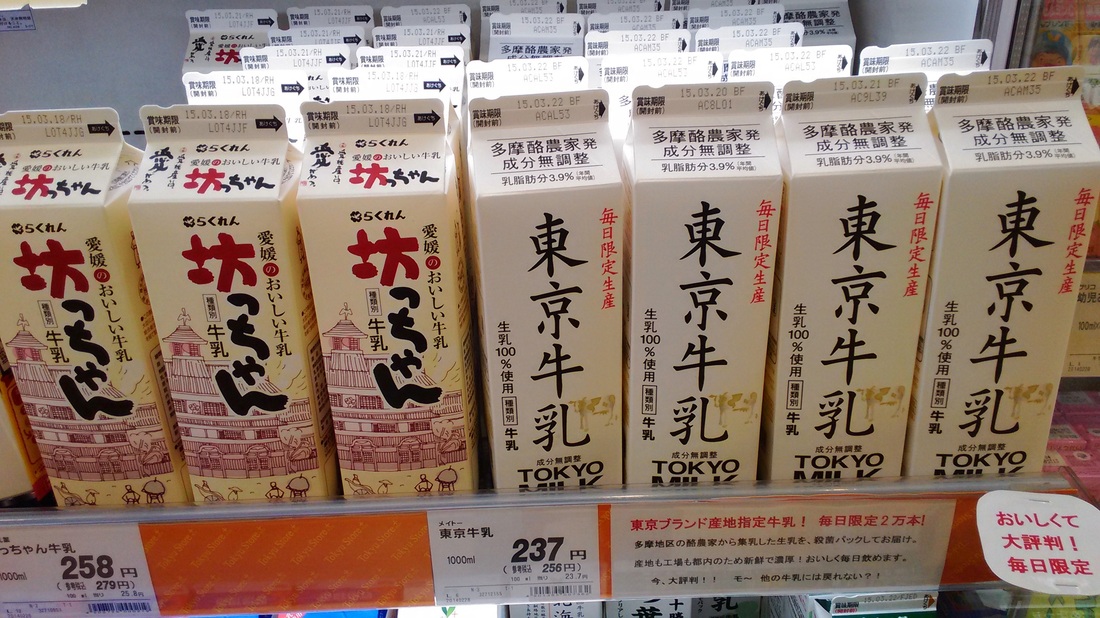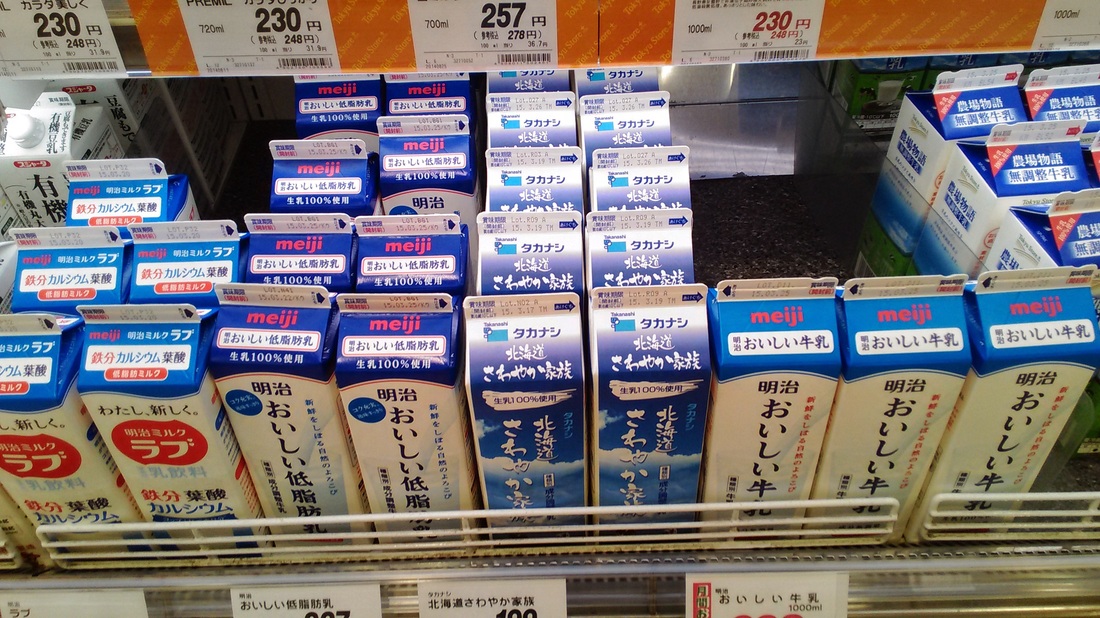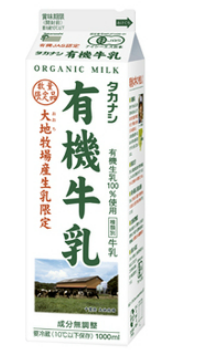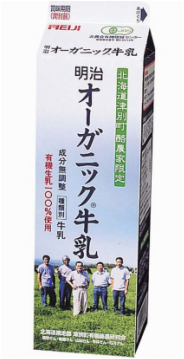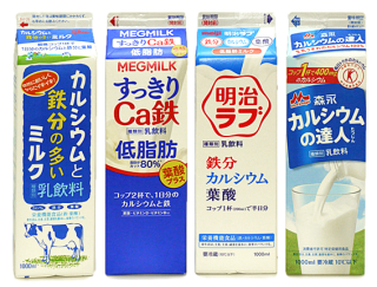Milk (Gyunu - 牛乳)
Although you may see a variety of packages in the supermarket, majority of the milk products are whole milk pasteurized and homogenized (meaning no cream on the top!) which come from different regions of Japan.
In Japan, Milk can be roughly categorized as the following:
- Mushibounyu(無脂肪乳)Non Fat Milk - Fat content is less than 0.5%
Other milk products you may see on the shelf are:
The price on the package may vary from 170 yen per liter to 500 yen per liter. Price difference comes from how they were pasteurized or whether they have been mass produced and blended or if they come from one farm. Organic milk(有機)in Japan is not so common and they may be hard to come by and usually costs more than double of non-organic mass produced milk.
There are three method of pasteurizing in Japan:
You can easily tell what the milk is by looking at it's package. If you want whole milk, Look out for the word "牛乳” and avoid "加工乳"(Processed Milk) or "乳飲料"(Milk Beverage) The numbers you may see on the carton such as 3.6, 3.7, 4.1 are the percentage of the fat content.
In Japan, Milk can be roughly categorized as the following:
- Gyunu/Seibun Muchoseinyu (牛乳/成分無調整)Whole Milk/Pure Milk (Nothing has been added or taken away) "無" means "no" in Kanji
- Seibun Choseseinyu (成分調整乳)Content Adjusted Milk
- Mushibounyu(無脂肪乳)Non Fat Milk - Fat content is less than 0.5%
Other milk products you may see on the shelf are:
- Kakonyu (加工乳) Processed Milk - Other Ingredients (such as butter or cream) are added into Milk
- Nyuinryo(乳飲料)- Milk beverage - Other non-dairy products have been added.
The price on the package may vary from 170 yen per liter to 500 yen per liter. Price difference comes from how they were pasteurized or whether they have been mass produced and blended or if they come from one farm. Organic milk(有機)in Japan is not so common and they may be hard to come by and usually costs more than double of non-organic mass produced milk.
There are three method of pasteurizing in Japan:
- UHT (Ultra Heat Treatment) - 1-3 sec. at 120 -135 C
- HTST (High Treatment Short Time) 15 sec. at 72 -78 C
- LTLT (Low Treatment Long Time) 30 minutes at 63-68 C Sold in Japan as Teionsakkinnyu (低温殺菌牛乳)at a premium price
You can easily tell what the milk is by looking at it's package. If you want whole milk, Look out for the word "牛乳” and avoid "加工乳"(Processed Milk) or "乳飲料"(Milk Beverage) The numbers you may see on the carton such as 3.6, 3.7, 4.1 are the percentage of the fat content.
An easy way to tell if you are getting whole milk
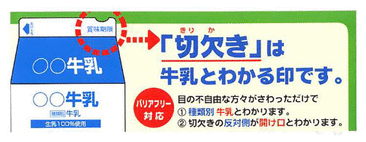 Image taken from Japan Dairy Association's Website
Image taken from Japan Dairy Association's Website
Another way to tell whether it is whole milk or not is the indentation on the top of the package. This dent is made for the visually impaired persons to tell that it is whole milk and not other milk type drinks of the same carton.
This indentation is not compulsory so you may not see it on all manufacturers and only implemented on 500ml and 1Liter cartons.
This indentation is not compulsory so you may not see it on all manufacturers and only implemented on 500ml and 1Liter cartons.
Milk LablesMilk Man
Although it is not popular, you can also get delivery from the milkman in your neighborhood. You need to call the operator and they will contact the nearest milkman to your home. They will bring you the catalog and you can choose what you would like to have delivered. The product line up is different from the supermarket and they focus on functional milk in small glass bottles, but they still carry the whole milk in 1 liter cartons too. They will charge a premium for them and when I used to have milk delivered from Meiji, it was about 250 yen per liter and they delivered twice a week. My mother in Hokkaido has a liter of glass bottle delivered from Meg milk twice a week and I think it was about 380 yen per bottle. Here is a list of the major milk delivery companies: |
Organic Milk in Japan |

